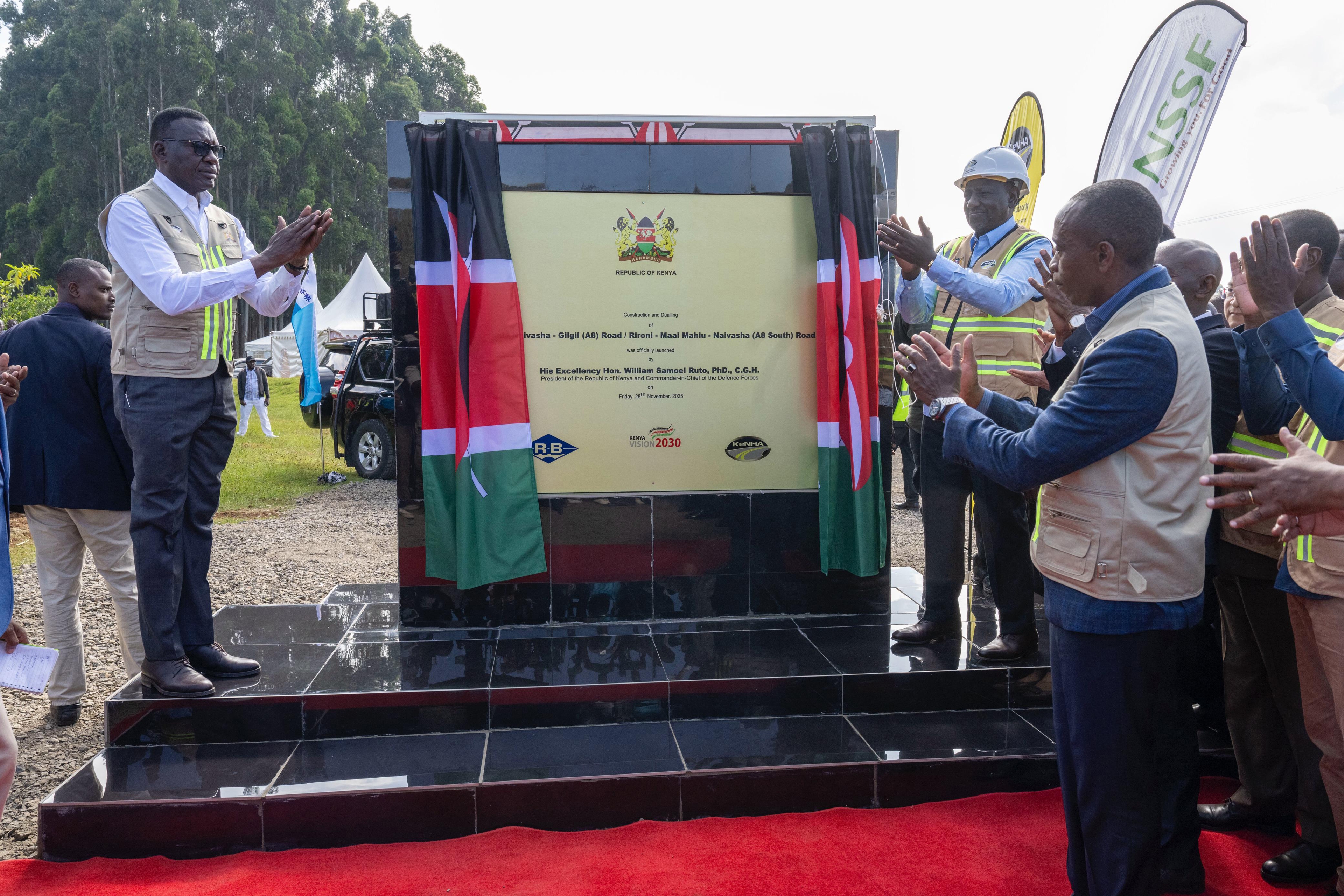At the heart of Maiyanat Community Conservancy in Doldol, Nanyuki, Laikipia county, lies a 200-acre attraction site.
A few years ago, the site was degraded and showed no hope of returning to life.
However, the local community and state agencies' intervention has given the site a new lease of life.
The Maiyanat community has integrated science, research and innovation to achieve land degradation neutrality as espoused in United Nations Convention to Combat Desertification strategy.
The community fenced off the site and built low embankments, before erecting semi-circular bunds that collected water.
At some point, livestock were allowed into the site to open up and manure the area.
Following the interventions, the 200-acre site now blossoms with grass and other vegetation.
On November 17 last year, Nema high-ranking officials visited the site and were amazed.
It is after this site visit that Nema board proposed to commemorate this year's World Day to Combat Desertification and Drought at Maiyanat.
The event was presided over by Environment CS Soipan Tuya.
The day is marked to raise awareness of desertification, land degradation and drought, particularly in Africa.
Tuya was accompanied by Environment PS Festus Ng'eno, Wildlife PS Silvia Museiya, Nema director general Mamo Mamo, Laikipia Governor Joshua Irungu, Nema chairperson Emilio Mugo and Kenya Forest Service Chief Conservator Alex Lemarkoko.
This year's theme was ‘Untied for land. Our legacy. Our future.’
Ongoing science shows global trends in desertification, land degradation and drought are exacerbated by increasing unsustainable human actions.
“According to the Global Land Outlook report of 2022, up to 40 per cent of the planet’s land is degraded which directly affects half of humanity and threatens roughly half of global GDP ( $44 trillion)," Tuya said.
"Here in Kenya, the land degradation assessment report of 2016 by the Ministry of Environment and Natural Resources which is the most comprehensive land degradation study, says about 91 per cent of our country is experiencing some form of land degradation with about 64 per cent experiencing high degradation and 27 per cent severe degradation,” Tuya said.
She praised the community's intervention and urged partners to put in resources to scale up such efforts.
“On our way here, we observed a beautiful landscape with most parts covered with vegetation which flourished during the just concluded rains. On keen observation, it is possible to tell that soon once the dry spell sets in, patterns of land degradation will be evident exposing our ongoing unsustainable actions,” Tuya said.
Scientists say some of the unsustainable actions will fuel desertification and drought manifestation and will subsequently plunge communities in further challenges with no immediate actions.
Tuya said the campaign to grow 15 billion trees in the next 10 years is on course.
Ng’eno said Asals are the most vulnerable areas to threats of land degradation.
“Recent reports say greatest part of our total land mass in the country is already affected by land degradation. The integrity of our rangeland ecosystems therefore continues to be compromised largely by unsustainable human exploitations, climate change, invasive species and biodiversity loss,” he said.
Chief conservator Alex Lemarkoko said efforts are underway to restore the Mukogodo forest.
He said KFS will integrate the needs of the society each time there are restoration efforts.
“I want to thank stakeholders and our valued partners for supporting Nema to restore this degraded area,” he said.
Mamo said degradation risk leads to loss of biodiversity.
He said once desertification starts, areas that were productive become unproductive.
About 100 acres are lost due to desertification and degradation.
“Unless there are concerted efforts to restore these degraded lands, we are going to lose huge chunks of drylands,” Mamo said.
The Nature Conservancy country director Munira Bashir said communities need to be empowered for sustainability.
She said the projects can be sustainable if communities are empowered.













